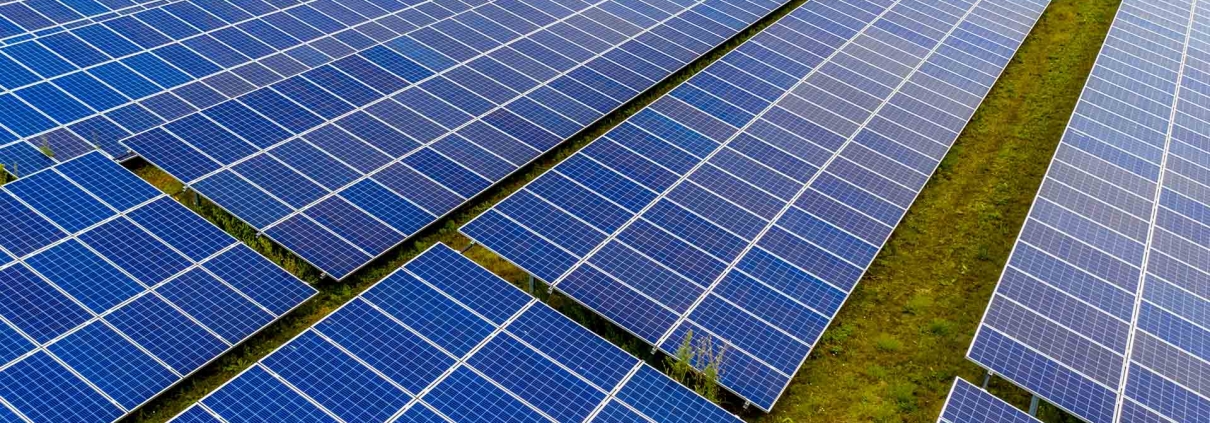What is Solar Farming and How Will It Help New Zealand?
The increasing concern for environmental sustainability and the rising demand for renewable energy sources have prompted a significant shift towards solar farming. Solar farming, a method of harvesting solar energy through large photovoltaic panels installed on vast areas of land, has gained traction as a viable alternative to traditional energy sources. In this article, we delve into the world of solar farming, its benefits, and the potential it holds for New Zealand’s energy landscape.
Hear at RCR, we’re proud to have launched our first solar farm in Ashburton comma and we’ve received a lot of questions around what is solar farming and how will it impact museum so we decided to give you this article…enjoy the read
Introduction to Solar Farming
What is Solar Farming?
Solar farming, also known as solar park or solar field, refers to large-scale solar installations designed to generate electricity by harnessing sunlight. These facilities consist of photovoltaic panels that convert solar radiation into direct current electricity. The generated electricity is then transmitted to the grid or used for local consumption. The concept of solar farming aligns with the sustainable use of natural resources and the reduction of carbon emissions.
The Concept of Solar Energy
Solar energy, derived from the sun’s radiation, is abundant and renewable. Unlike fossil fuels, solar power is a clean and sustainable energy source, making it a compelling solution for addressing the challenges of climate change and energy security. The utilization of solar energy through solar farming presents an opportunity to transition towards a greener and more sustainable energy paradigm.
Benefits of Solar Farming
Environmental Impact
The adoption of solar farming significantly contributes to mitigating the effects of climate change. By generating electricity from an abundant and clean energy source, solar farming reduces reliance on fossil fuels, thereby lowering greenhouse gas emissions. This transition plays a pivotal role in advancing environmental conservation efforts and promoting ecological balance.
Cost-Effectiveness
Solar farming offers long-term cost savings due to the abundant and free nature of sunlight. Once the infrastructure is in place, the operational and maintenance costs are comparatively low. Furthermore, with advancements in technology, the efficiency and affordability of solar panels have improved, making solar farming a financially attractive option for energy production.
Energy Independence
The decentralisation of energy production through solar farming holds the potential to increase energy independence. By diversifying the sources of electricity generation, communities and regions can reduce their reliance on centralised power systems, thereby enhancing energy security and resilience.
### Solar Farming in New Zealand
Current Energy Landscape
New Zealand relies heavily on renewable energy, with hydroelectricity being the primary source of power. Despite this, the potential for solar energy remains largely untapped, accounting for a small fraction of the country’s energy mix. However, advances in solar technology and the growing need for sustainable energy solutions have paved the way for the integration of solar farming into New Zealand’s energy portfolio.
Potential for Solar Farming
New Zealand’s ample sunlight exposure, particularly in regions like Northland and the Bay of Plenty, presents an ideal environment for solar farming. The vast open spaces in rural areas offer potential sites for large-scale solar installations, providing an opportunity to harness solar energy on a significant scale.
Government Initiatives and Policies
The New Zealand government has demonstrated its commitment to renewable energy initiatives, including solar farming. Through targeted policies and incentives, such as the Renewable Electricity Fund and the introduction of solar energy grants, the government aims to accelerate the adoption of solar energy and promote investment in solar farming infrastructure.
Challenges and Solutions
Land Availability and Suitability
One of the primary challenges facing the expansion of solar farming in New Zealand is the availability of suitable land for large-scale installations. Addressing this challenge requires thoughtful planning and collaboration with landowners to identify suitable sites that maximize solar exposure while minimizing environmental impact.
Integration with Existing Infrastructure
Integrating solar farms into the existing energy infrastructure presents technical and logistical challenges. Ensuring seamless integration of solar-generated electricity into the grid and addressing potential grid stability concerns are key factors that require careful consideration and innovative solutions.
Community Engagement and Support
Engaging local communities and addressing concerns related to the visual impact of solar farms, land use, and environmental stewardship is critical for the successful implementation of solar farming. Building support through transparent communication and community involvement is essential for overcoming resistance and fostering a collective commitment to sustainable energy practices.
Impact on New Zealand
Economic Benefits
The proliferation of solar farming in New Zealand holds significant economic benefits. The development of solar infrastructure creates job opportunities, stimulates local economies, and attracts investment in the renewable energy sector. Furthermore, the reduction in reliance on imported fossil fuels contributes to increased energy independence, thereby enhancing the country’s economic resilience.
Environmental Impact
The widespread adoption of solar farming contributes to New Zealand’s efforts to reduce carbon emissions and combat climate change. By displacing traditional fossil fuel-based electricity generation, solar farming plays a pivotal role in promoting a cleaner and more sustainable energy landscape, thus safeguarding the country’s natural ecosystems and biodiversity.
Social Implications
The deployment of solar farming infrastructure can have positive social implications, such as raising awareness about renewable energy, fostering a sense of environmental responsibility, and promoting the adoption of sustainable practices within local communities. Additionally, the implementation of solar farming projects can serve as a catalyst for technological innovation and knowledge sharing, driving social progress and community engagement.
Technology and Innovation
Advancements in Solar Technology
The rapid advancements in solar technology have contributed to the increasing efficiency and cost-effectiveness of solar panels. Innovations in panel design, energy storage solutions, and smart grid technologies have further enhanced the viability of solar farming, making it an attractive and competitive option for energy generation.
Potential for Growth and Development
The ongoing research and development in solar energy technology underscore the potential for continual growth and development in the solar farming sector. Innovations in energy storage systems, such as battery technology, and the integration of smart grid solutions are poised to revolutionise the scalability and reliability of solar farming, thereby facilitating its widespread adoption.
Examples of Successful Solar Farming Projects
Across the globe, numerous successful solar farming projects have demonstrated the viability and impact of large-scale solar installations. From utility-scale solar parks to community-led initiatives, these projects serve as inspiring examples of how solar farming can transform energy landscapes, drive economic growth, and contribute to environmental sustainability.
Lessons Learned and Best Practices
By examining the lessons learned from successful solar farming projects, stakeholders in New Zealand can gain valuable insights into best practices, project management strategies, and community engagement approaches. Learning from these experiences is essential for fostering a conducive environment for the successful establishment and operation of solar farming initiatives.
Promoting Sustainable Practices
Community Involvement
Incorporating community input and participation in the planning and development of solar farming projects is paramount for nurturing a culture of ownership and sustainability. Engaging with local communities, soliciting feedback, and addressing concerns empowers individuals to become advocates for renewable energy and active participants in the transition towards sustainable energy practices.
Educational Initiatives
Educational programs and outreach activities play a crucial role in raising awareness about solar energy and its benefits. By promoting the understanding of solar technology, energy conservation practices, and the broader implications of renewable energy, educational initiatives can instill a sense of responsibility and initiative among citizens, thereby fostering a sustainable energy-conscious society.
Supporting Local Businesses
Economic Opportunities
The growth of solar farming presents a range of economic opportunities for local businesses, including construction firms, electrical contractors, and suppliers of solar components. The demand for skilled labor and expertise in the renewable energy sector can spur job growth and stimulate entrepreneurship, fostering a vibrant and resilient local economy.
Strengthening the Local Economy
By encouraging investment in solar farming infrastructure and fostering partnerships with local businesses, New Zealand can bolster its domestic economy and contribute to the development of a robust, self-sustaining renewable energy industry. This, in turn, promotes economic stability and regional prosperity while reducing reliance on external energy sources.
Government Incentives and Programs
Available Grants and Subsidies
The availability of government grants, subsidies, and financial incentives for solar farming projects serves as a catalyst for investment and innovation. By providing financial support and reducing barriers to entry, these initiatives encourage individuals, businesses, and communities to undertake solar farming endeavors, thereby accelerating the transition towards renewable energy.
Support for Small-Scale Initiatives
In addition to supporting large-scale solar installations, government programs that cater to small-scale and community-based solar projects play a crucial role in democratizing access to solar energy. By empowering individuals and community organizations to embrace solar energy, these initiatives contribute to a diversified and resilient energy landscape across New Zealand.
Future Outlook
Potential Growth and Expansion
The future of solar farming in New Zealand holds promise for substantial growth and expansion. With ongoing technological advancements, declining costs, and favourable policy frameworks, the proliferation of solar farming is poised to play a pivotal role in shaping the country’s energy future, thus contributing to a more sustainable and resilient energy ecosystem.
Role of Solar Farming in New Zealand’s Energy Future
As New Zealand continues its journey towards a sustainable energy future, solar farming stands to play an integral role in diversifying the energy portfolio, reducing carbon emissions, and promoting energy self-sufficiency. The integration of solar farming into the mainstream energy mix reflects a collective commitment towards building a cleaner, greener, and more prosperous future for generations to come.
The concept of solar farming represents a compelling solution for meeting New Zealand’s energy needs while advancing environmental sustainability and economic prosperity. By harnessing the power of solar energy, New Zealand has the opportunity to reduce its carbon footprint, create employment opportunities, and foster a resilient and diverse energy ecosystem. The concerted efforts of stakeholders, coupled with innovative technologies and supportive policies, will play a pivotal role in empowering New Zealand to embrace solar farming and chart a sustainable energy future.
FAQs
1. Is solar farming economically viable in New Zealand?
– Solar farming offers long-term cost savings and economic benefits, making it a financially attractive option for energy production in New Zealand.
2. How does solar farming help mitigate climate change?
– By displacing traditional fossil fuel-based electricity generation, solar farming reduces greenhouse gas emissions, thereby contributing to efforts to combat climate change.
3. What role do government incentives play in promoting solar farming?
– Government incentives, such as grants and subsidies, encourage investment in solar farming projects and reduce barriers to entry, thereby accelerating the transition towards renewable energy.
4. Are there any environmental concerns associated with solar farming?
– While solar farming is a clean and sustainable energy source, careful planning is required to address potential environmental impacts related to land use and wildlife habitat.
5. How can individuals and communities contribute to promoting solar farming?
– Individuals and communities can contribute to promoting solar farming by advocating for renewable energy, participating in educational initiatives, and engaging in community-led solar projects.




